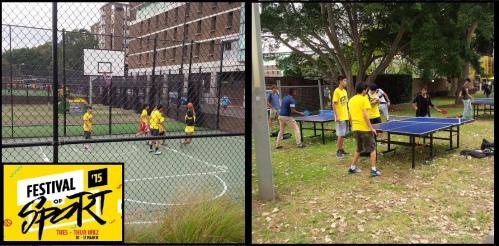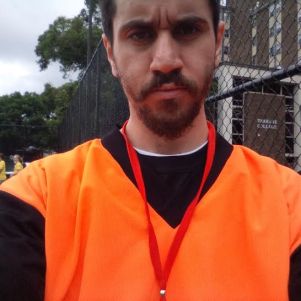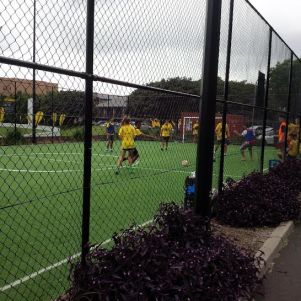The date was the 31st of January 2015, the venue was “Stadium Australia” in Sydney, the event was The AFC Asian Cup Final and there was only one winner at the end of the night.. Australia.
This night played a huge role in cementing Australia’s place within soccer history books, but its significance goes farther than just that. The success earned from the Australian national soccer team might affect its identity in terms of being an emerging powerhouse on the Asian soccer scene for years to come.
As Cashman (2009) argued in his article Asia’s place in the imaging of Australian sport, about how Australia will be measured as a sporting nation for its ‘football values’ which will help it bridge its way into the Asian soccer scene. Even more so the fact that if Australia does qualify for future World Cups they will be considered a representative of the Asian continent.
This is a video of Massimo Luongo being presented The Most Valuable Player Award in The Asian 2015 Cup:
Massimo Luongo can be considered a great example when it comes to the argument concerning Australian sporting identity. As Massimo’s Wikipedia Page shows us that he was born in Sydney from an Italian father and an Indonesian mother. And its these diversities in cultures and ethnicities which have been ever-present within the Australian national team and played a great role in helping it reach its recent success.
As Hay (2006) wrote in his article ‘Our wicked foreign game’: why has association football (Soccer) not became the main code of football in Australia?, when speaking of migrants who arrived newly at Australia:
“Soccer clubs became one of the places where migrant groups could gather for more than just the sport. Aside from providing them with recreation and entertainment in a sport with which many were familiar, unlike Australian rules or cricket, the soccer clubs assisted migrants in a variety of ways. They helped migrants to establish an identity that was both Australian and related to their homeland. Many migrants were and are fiercely proud of both societies. Soccer gave them a chance to compete at something in which they could succeed through their own efforts and with skills that were often superior to those of Australians of longer standing.”
Another success story that plays a huge role in this debate, is that concerning the Western Sydney Wanderers and their 2014 Asian Football Club Champions League win, making them the first Australian side to hold such an achievement. This club was only founded in 2012, but despite their short history they have already been able to reach the mega heights of winning Asia’s most coveted soccer club award.
Nonetheless, Tuckerman & Bowman (2011) explained in their article Australian mainstream media coverage of Asian football, how the lack of cultural and historical ties between Australia and Asia may lead to fans being disinterested in Asian sports. But on the other hand, if Australia keeps winning Asian based trophies in years to come, then the Australian people might become truly invested.

UNSW’s 2015 Festival of Sports events included basketball tournaments and table tennis matches. Taken By Haithem Barqawi
Of course changes in identity do not necessarily entail negative outcomes, as with the 2015 Asian cup and the Wanderers 2014 successes prove to us that identity can sometimes lead to extraordinary moments. And on a more personal level this has been conveyed in the University of New South Wales’ “Sports Festival 15’”.
As ARC’s Festival of Sports organiser and coordinator Mitchell McBurnie, explained to me when I interviewed him on the 18th of March, that the main aim behind holding this event was to get people’s attention to the benefits of sports and help bring students from different backgrounds together under one common roof: sports.
‘One of the events main successes was that a great number of students got involved and everywhere I looked it was packed with participants.” Mr. McBurnie said.

UNSW’s Festival of Sports 15’ organiser and coordinator Mitchell Mcburnie holding some of the events prizes. Taken from facebook.com/unsw.sportandrecreation
Moreover, UNSW’s 2015 Sports Festival urged students to interact and participate with their fellow university goers in a number of sporting and recreational activities proving that when it comes to sports the subject of identity does not exist and will never be questioned as long as everyone plays to win and have fun.
I personally volunteered as part of the ARC volunteer army and refereed soccer matches on the 10th and the 11th of March in order to obtain further information on this subject matter. That experience allowed me to see firsthand how this sport of soccer helped bring students with diverse backgrounds who spoke different languages together for the purpose of speaking a universal language which is: soccer.

Me with my “serious” referee face on at UNSW’s Festival of Sports soccer cage. Taken by Haithem Barqawi
Obviously the issue of identity and the role it plays with Australian soccer will remain for generations and generations to come, but it is up to us to find the beauty and positives hidden within it in order to keep winning and triumphing as a sports loving nation.
Blog created by: Haithem Barqawi
Interviewee Contact Info:
Name: Mitchell McBurnie
Email: festivalofsport@arc.unsw.edu.au
Mobile: 0403822304
Workplace: UNSW Arc Sports




